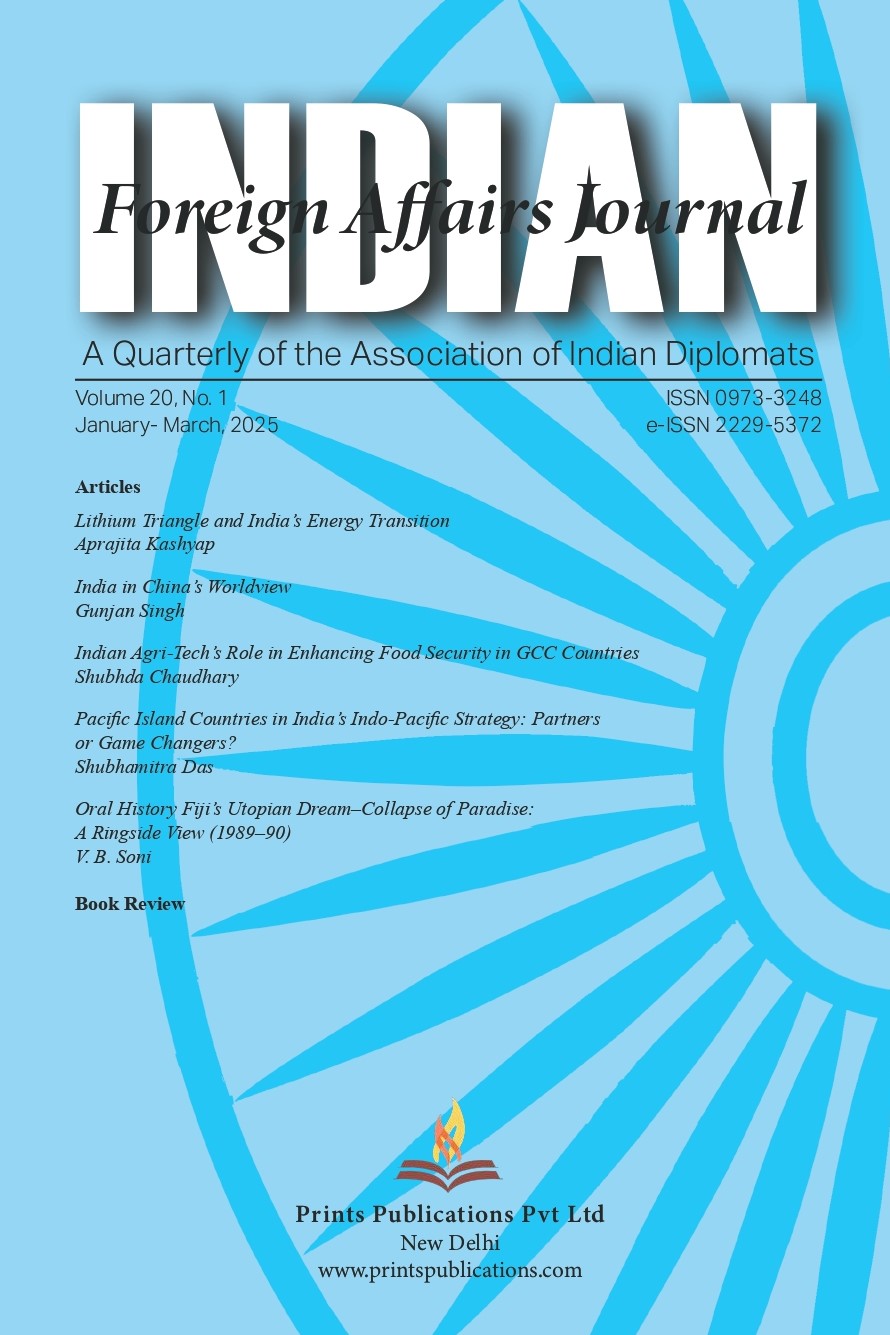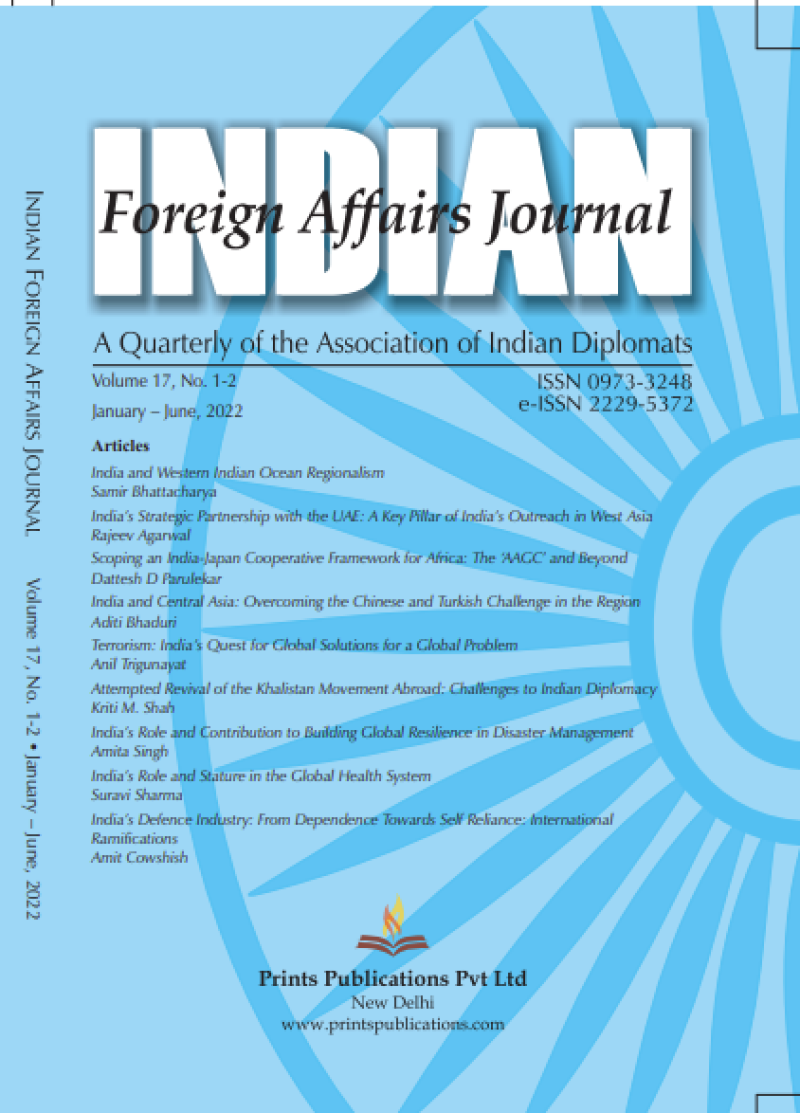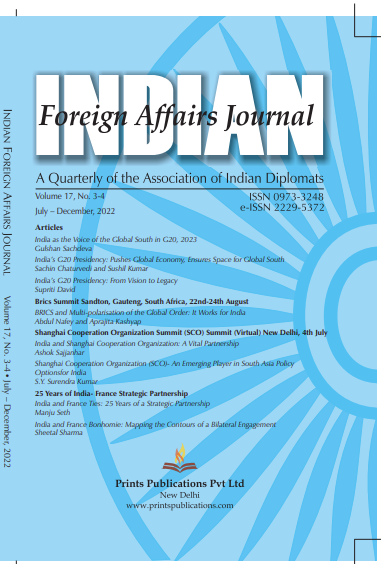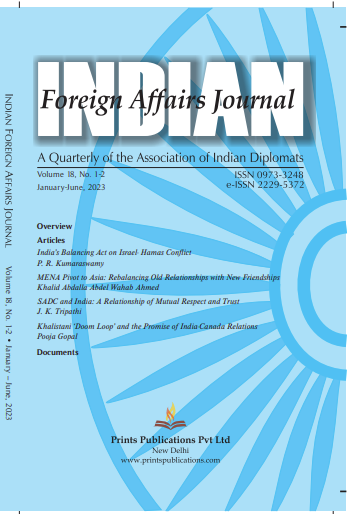Indian Foreign Affairs Journal
Published in Association with Association of Indian Diplomats
Current Volume: 20 (2025 )
ISSN: 0973-3248
e-ISSN: 2229-5372
Periodicity: Quarterly
Month(s) of Publication: March, June, September & December
Subject: Political Science & International Affairs
DOI: 10.32381/IFAJ
Strategic Shifts: India’s Remote War Strategy in Response to Sino-Indian Tensions
By : Dalbir Ahlawat, Shamima Pervin
Page No: 158-175
Abstract
India and China have been embroiled in a prolonged border dispute, marked by differing interpretations of the Line of Actual Control and escalating military pressures. This article examines the strategic implications of the ‘China factor’ on India’s evolving remote warfare strategy, highlighting the urgent need for technological advancements to address security challenges posed by China’s rapid military modernisation and growing influence in the Indian Ocean region. China’s aggressive AI-driven advancements and maritime ambitions underscore the widening power imbalance, prompting India to shift its military strategy from ‘deterrence by denial’ to ‘deterrence by punishment’. The article explores India’s rationale for adopting remote warfare capabilities, emphasising the strategic advantages of drones, AI-enabled systems, and autonomous technologies in enhancing border security, and mitigating risks in hard-to-reach terrains. It discusses India’s efforts to modernise its armed forces through indigenous production, international collaborations, and policy reforms, including the integration of AI in military operations. Challenges such as inconsistent implementation, limited funding, and a lack of comprehensive alignment between national policy and military strategy are critically analysed. The article concludes by recommending measures to strengthen India’s remote warfare capabilities, asserting that bridging these gaps is essential for safeguarding sovereignty, counterbalancing regional adversaries, and asserting India’s role as a major global power.
Authors:
Dalbir Ahlawat is Senior Lecturer, Department of Security Studies and Criminology, Macquarie University, Sydney, Australia and Japan Foundation Indo-Pacific Partnership Research Fellow.
Shamima Pervin is a Research Scholar, Department of Security Studies and Criminology, Macquarie University, Sydney, Australia.
DOI: https://doi.org/10.32381/IFAJ.2024.19.3.2










